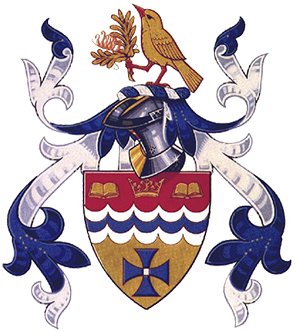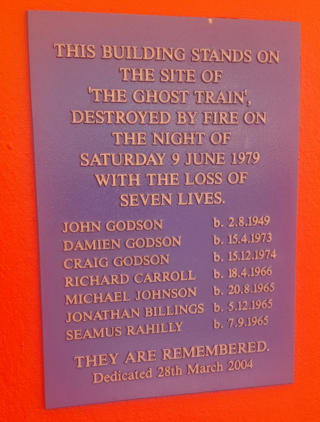Inquests in England and Wales are held into sudden or unexplained deaths and also into the circumstances of and discovery of a certain class of valuable artefacts known as "treasure trove". In England and Wales, inquests are the responsibility of a coroner, who operates under the jurisdiction of the Coroners and Justice Act 2009. In some circumstances where an inquest cannot view or hear all the evidence, it may be suspended and a public inquiry held with the consent of the Home Secretary.

A coroner is a government or judicial official who is empowered to conduct or order an inquest into the manner or cause of death. The official may also investigate or confirm the identity of an unknown person who has been found dead within the coroner's jurisdiction.

The medical examiner is an appointed official in some American jurisdictions that investigates deaths that occur under unusual or suspicious circumstances, to perform post-mortem examinations, and in some jurisdictions to initiate inquests. They are necessarily trained in pathology.

The Royal North Shore Hospital (RNSH) is a major public teaching hospital in Sydney, Australia, located in St Leonards. It serves as a teaching hospital for Sydney Medical School at the University of Sydney, University of Technology Sydney and Australian Catholic University and has over 600 beds.
Acute care is a branch of secondary health care where a patient receives active but short-term treatment for a severe injury or episode of illness, an urgent medical condition, or during recovery from surgery. In medical terms, care for acute health conditions is the opposite from chronic care, or longer-term care.
Operation Paget was the British Metropolitan Police inquiry established in 2004 to investigate the conspiracy theories about the death of Diana, Princess of Wales in a car crash in Paris in 1997. The inquiry's first report with the findings of the criminal investigation was published in 2006. The inquiry was wound up following the conclusion of the British inquest in 2008, in which a jury delivered its verdict of an "unlawful killing" due to the "gross negligence" of both the driver of Diana's car and the pursuing paparazzi.

The Coroner's Court of New South Wales is the court in the Australian state of New South Wales where legal proceedings, in the form of an inquest or inquiry, are held and presided over by the State Coroner of New South Wales, a Deputy State Coroner of New South Wales, or another coroner of the state of New South Wales.
Nola Therese Fraser is an Australian small business owner, former Registered Nurse and former Liberal Party and Independent candidate for the New South Wales state seat of Macquarie Fields.

The Sydney Ghost Train fire at Luna Park Sydney in Milsons Point, New South Wales, Australia killed seven people on 9 June 1979. Inadequate fire-fighting measures and low staffing caused the fire to completely destroy the amusement park's ghost train. The ride is believed to have been first constructed in 1931 and transported between Milsons Point and Glenelg, South Australia, during 1934 and 1935.
An inquest is a judicial inquiry in common law jurisdictions, particularly one held to determine the cause of a person's death. Conducted by a judge, jury, or government official, an inquest may or may not require an autopsy carried out by a coroner or medical examiner. Generally, inquests are conducted only when deaths are sudden or unexplained. An inquest may be called at the behest of a coroner, judge, prosecutor, or, in some jurisdictions, upon a formal request from the public. A coroner's jury may be convened to assist in this type of proceeding. Inquest can also mean such a jury and the result of such an investigation. In general usage, inquest is also used to mean any investigation or inquiry.
Graeme Stephen Reeves is a deregistered former gynecologist and obstetrician from New South Wales, Australia, dubbed the Butcher of Bega in the press. Reeves was deregistered in 2004 for performing obstetric procedures at Pambula and Bega hospitals despite being banned from obstetrics, and in September 2008 was charged in relation to alleged sexual and indecent assaults and genital mutilation at Bega, Pambula and Richmond between 2001 and 2003. He was sentenced in relation to assaults in 2011.

East Kent Hospitals University NHS Foundation Trust is one of the largest hospital trusts in England. It runs the Kent and Canterbury Hospital (Canterbury), William Harvey Hospital (Ashford), Queen Elizabeth The Queen Mother Hospital (Margate), Buckland Hospital (Dover), and the Royal Victoria Hospital (Folkestone) – and some outpatient facilities in the East Kent and Medway areas in England.
In many legal jurisdictions, the manner of death is a determination, typically made by the coroner, medical examiner, police, or similar officials, and recorded as a vital statistic. Within the United States and the United Kingdom, a distinction is made between the cause of death, which is a specific disease or injury, versus manner of death, which is primarily a legal determination versus the mechanism of death which does not explain why the person died or the underlying cause of death and can include cardiac arrest or exsanguination. Different categories are used in different jurisdictions, but manner of death determinations include everything from very broad categories like "natural" and "homicide" to specific manners like "traffic accident" or "gunshot wound". In some cases an autopsy is performed, either due to general legal requirements, because the medical cause of death is uncertain, upon the request of family members or guardians, or because the circumstances of death were suspicious.

Luke Anthony Borusiewicz was a toddler in Queensland, Australia, who died while under foster care administered by the Department of Community Services (DOCS), an agency of the Department of Communities, Queensland.
Peter Garling, RFD is an Australian judge, a Judge of the Supreme Court of New South Wales, the highest court in the state of New South Wales.
John Birley Abernethy is a former State Coroner of New South Wales.
The Bureau of Health Information (BHI) is a board-governed organisation that publishes independent reports about the performance of the public healthcare system in New South Wales, Australia.
Inquest Charitable Trust is a charity concerned with state related deaths in England and Wales. It was founded in 1981. Inquest provides support on state-related deaths, including deaths in custody and their investigation, to bereaved people, lawyers, advice and support agencies, the media and parliamentarians. Their policy, parliamentary, campaigning and media work is grounded in the day-to-day experience of working with bereaved people.

Olaseni Lewis, a 23-year-old British man, died on 3 September 2010 at Bethlem Royal Hospital in London, United Kingdom, after police subjected him to prolonged physical restraint. Lewis had voluntarily sought care following the onset of acute mental health issues and died from cerebral hypoxia soon after, following actions that involved eleven officers of London's Metropolitan Police. After seven years of campaigning by Lewis' family and two inquiries by the Independent Police Complaints Commission (IPCC), a second coroners' inquiry was raised.
The Emerging Drugs Network of Australia (EDNA) is a collaborative multi-agency project to detect new illicit drugs, and their clinical effects. It is also designed as an early warning system for public health systems across Australia, and to inform policy and decision making processes. The early warning system involves sharing of information between emergency department physicians, toxicologists, and forensic laboratories across the country. This allows emerging trends to be discovered, and for specific treatment measures to be developed based on objective data.







